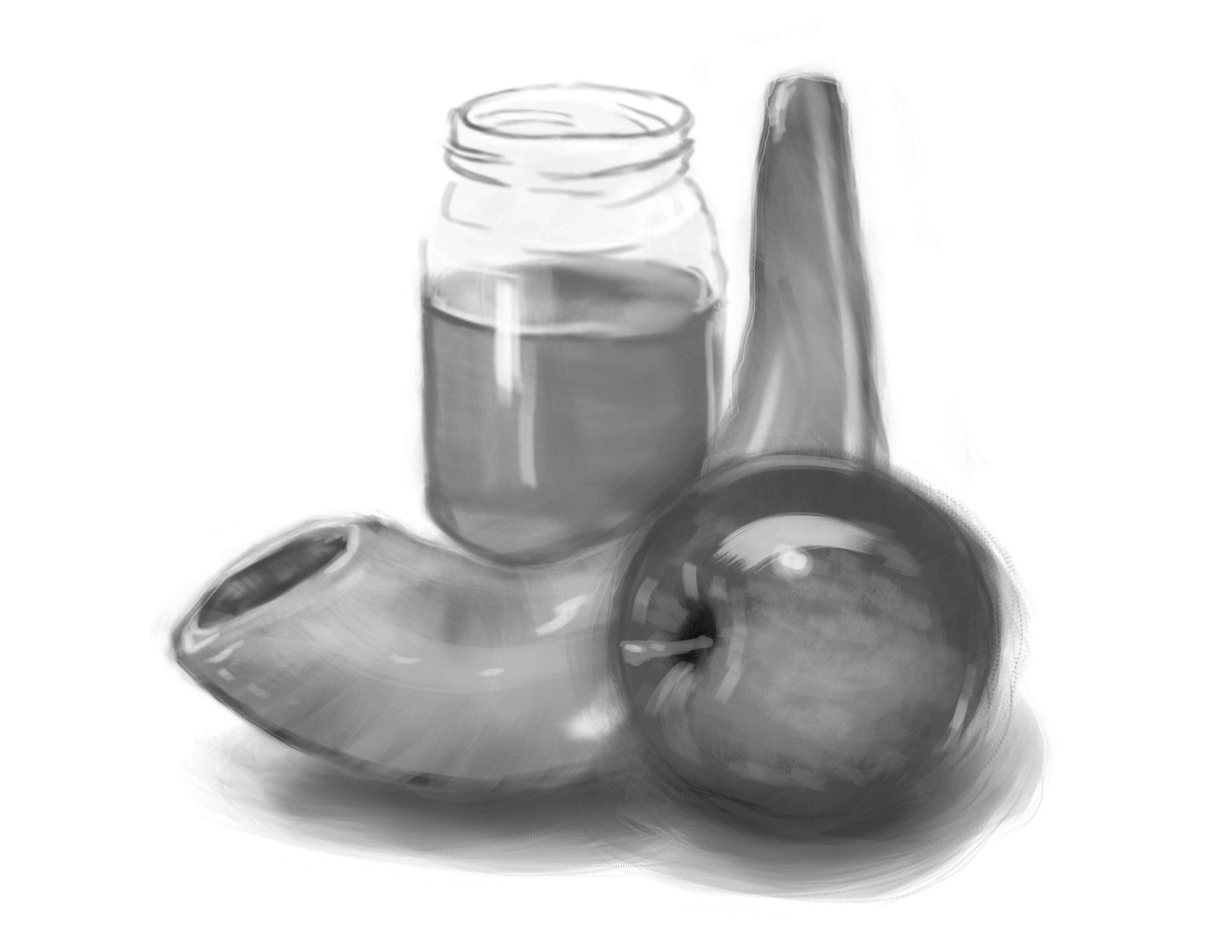
Monday, October 3rd, 2016.
I woke up today to a grey and overcast sky. What a way to welcome the new year, I thought, until I remembered the question that’s been haunting me: a new year for whom?
Rosh Hashanah began last night at sundown. While I was going about the ordinary motions of my night — eating in the dining hall, running out to grab a late night cup of coffee — I imagined the rabbis in yeshiva, adorned in white robes like angels, awaiting the beginning of the holiday. And when I walked outside this morning, I realized I didn’t have to imagine the events of six thousand miles away: campus was suddenly dotted with Jews in dress attire and yarmulkes, on their walk to the morning service.
People are often surprised to learn that it is Rosh Hashanah, not Yom Kippur, on which one is judged for the actions of the past year. I know I was. “On Rosh Hashanah it is written, and on Yom Kippur it is sealed,” begins the most famous of the day’s liturgies. The confusion stems from the lack of Rosh Hashanah liturgy on forgiveness and repentance; in fact, neither topic is mentioned at all on the holiday. Instead, Rosh Hashanah prayers focus on the glory of God — his kingship, his mercy, his power. The belief is that if one praises God there is no need to ask directly for forgiveness: it will flow willingly from his divinity.
Rosh Hashanah is difficult for me because I am not interested in praising God. Nor am I invested in redemption or forgiveness from him. During a bleak winter a few years ago, I broke up with the God of my youth — the God of the Old Testament, of shame and of guilt — and I haven’t tried to get back together since. Not even a late-night text message.
But Hegel was right: there is not a master without the slave, nor God without the believers. Another way to say this might be: I can ditch God easily, but can I forsake the Jewish people? I’m reminded of the lines of Adrienne Rich, the mother of lesbian-Jewish-queer poets:
“But I have a nightmare to tell: I am trying to say
that to be with my people is my dearest wish
but that I also love strangers
that I crave separateness …
This is the day of atonement; but do my people forgive me?”
I have a folder on my computer labelled “Letters.” These are the letters I have started to write — but never finished — to people from my past life: from my elementary school, from the West Bank yeshiva, from my first college, which was an Orthodox school in Manhattan. Each letter explains, to the best of my ability, how in the course of two years I have gone from Orthodox and straight to secular and gay.
But the meat of each letter is not that story, but rather an apology for my silence. The thing that no one tells you about coming out and leaving a religious community is that you must also leave behind a version of yourself — as well as the future image of yourself — you had once constructed. A little over a year ago, I left behind that life — the past, present and future of it. Today, I’m still in mourning for what I’ve lost.
My grief has manifested itself in many ways, but most noticeable is my silence. I didn’t know how to leave without leaving completely, how to negotiate, how to make compromises. So I drew a line in the sand and moved forward, letting go of relationships and people I had once been close to, but to whom I no longer know what to say. Anger made forgetting God easier, but I have found with humans, that is not the case. The people of my past populate my waking conscience and my dreams. I, like Rich, ask: “do my people forgive me?” But in the same breath I ask, “for what?”
Again, like Rich, I don’t have answers, only questions. All I know is that this morning, one burns most intensely: Will the pain from the past life ever fade away?
Maybe the answer to that question is what I wish for on this new year’s day.







